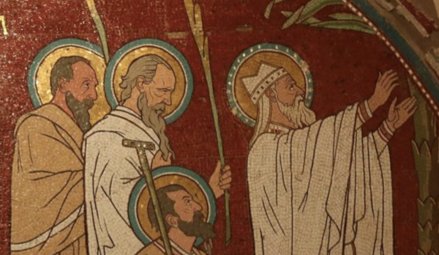- By theme
- Jesus
- The many proofs of Christ’s resurrection
- Saint Thomas Aquinas: God gave all the divine proofs we needed to believe
- The surpassing power of Christ's word
- Lewis’s trilemma: a proof of Jesus’s divinity
- God saves: the power of the holy name of Jesus
- Jesus spoke and acted as God's equal
- Jesus' divinity is actually implied in the Koran
- Jesus came at the perfect time of history
- Rabbinical sources testify to Jesus' miracles
- Mary
- The Church
- The Bible
- An enduring prophecy and a series of miraculous events preventing the reconstruction of the Temple
- The authors of the Gospels were either eyewitnesses or close contacts of those eyewitnesses
- Onomastics support the historical reliability of the Gospels
- The New Testament was not altered
- The New Testament is the best-attested manuscript of Antiquity
- The Gospels were written too early after the facts to be legends
- Archaeological finds confirm the reliability of the New Testament
- The criterion of embarrassment proves that the Gospels tell the truth
- The dissimilarity criterion strengthens the case for the historical reliability of the Gospels
- 84 details in Acts verified by historical and archaeological sources
- The unique prophecies that announced the Messiah
- The time of the coming of the Messiah was accurately prophesied
- The prophet Isaiah's ultra accurate description of the Messiah's sufferings
- Daniel's "Son of Man" is a portrait of Christ
- The Apostles
- Saint Peter, prince of the apostles
- Saint John the Apostle: an Evangelist and Theologian who deserves to be better known (d. 100)
- Saint Matthew, apostle, evangelist and martyr (d. 61)
- James the Just, “brother” of the Lord, apostle and martyr (d. 62 AD)
- Saint Matthias replaces Judas as an apostle (d. 63)
- The martyrs
- The protomartyr Saint Stephen (d. 31)
- Polycarp, bishop of Smyrna, disciple of John and martyr (d. 155)
- Justin Martyr: philosopher and apologist (d.165)
- Saint Blandina and the Martyrs of Lyon: the fortitude of faith (177 AD)
- Saint Agatha stops a volcano from destroying the city of Catania (d. 251)
- Saint Lucy of Syracuse, virgin and martyr for Christ (d. 304)
- Saint Boniface propagates Christianity in Germany (d. 754)
- Thomas More: “The king’s good servant, but God’s first”
- The martyrdom of Paul Miki and his companions (d. 1597)
- The martyrs of Angers and Avrillé (1794)
- The Martyrs of Compiègne (1794)
- The Vietnamese martyrs Father Andrew Dung-Lac and his 116 companions (17th-19th centuries)
- He braved torture to atone for his apostasy (d. 1818)
- Blaise Marmoiton: the epic journey of a missionary to New Caledonia (d. 1847)
- The Uganda martyrs: a recurring pattern in the persecution of Christians (1885)
- José Luis Sanchez del Rio, martyred at age 14 for Christ the King (d. 1928)
- Saint Maximilian Kolbe, Knight of the Immaculate (d. 1941)
- The monks
- The Desert Fathers (3rd century)
- Saint Anthony of the Desert, a father of monasticism (d. 356)
- Saint Benedict, father of Western monasticism (d. 550)
- Saint Bruno the Carthusian (d.1101): the miracle of a hidden life
- Blessed Angelo Agostini Mazzinghi: the Carmelite with flowers pouring from his mouth (d. 1438)
- Monk Abel of Valaam's accurate prophecies about Russia (d. 1841)
- The more than 33,000 miracles of Saint Charbel Maklouf (d. 1898)
- Saint Pio of Pietrelcina (d. 1968): How God worked wonders through "a poor brother who prays"
- The surprising death of Father Emmanuel de Floris (d. 1992)
- The prophecies of Saint Paisios of Mount Athos (d. 1994)
- The saints
- Saints Anne and Joachim, parents of the Virgin Mary (19 BC)
- Saint Nazarius, apostle and martyr (d. 68 or 70)
- Ignatius of Antioch: successor of the apostles and witness to the Gospel (d. 117)
- Saint Gregory the Miracle-Worker (d. 270)
- Saint Martin of Tours: patron saint of France, father of monasticism in Gaul, and the first great leader of Western monasticism (d. 397)
- Saint Augustine of Canterbury evangelises England (d. 604)
- Saint Lupus, the bishop who saved his city from the Huns (d. 623)
- Saint Rainerius of Pisa: from musician to merchant to saint (d. 1160)
- Saint Dominic of Guzman (d.1221): an athlete of the faith
- Saint Francis, the poor man of Assisi (d. 1226)
- Saint Anthony of Padua: "everyone’s saint"
- Saint Rose of Viterbo or How prayer can transform the world (d. 1252)
- Saint Simon Stock receives the scapular of Mount Carmel from the hands of the Virgin Mary
- The unusual boat of Saint Basil of Ryazan
- Saint Agnes of Montepulciano's complete God-confidence (d. 1317)
- The extraordinary conversion of Michelina of Pesaro
- Saint Peter Thomas (d. 1366): a steadfast trust in the Virgin Mary
- Saint Rita of Cascia: hoping against all hope
- Saint Catherine of Genoa and the Fire of God's love (d. 1510)
- Saint Anthony Mary Zaccaria, physician of bodies and souls (d. 1539)
- Saint Ignatius of Loyola (d. 1556): "For the greater glory of God"
- Brother Alphonsus Rodríguez, SJ: the "holy porter" (d. 1617)
- Martin de Porres returns to speed up his beatification (d. 1639)
- Virginia Centurione Bracelli: When God is the only goal, all difficulties are overcome (d.1651)
- Saint Marie of the Incarnation, "the Teresa of New France" (d.1672)
- St. Francis di Girolamo's gift of reading hearts and souls (d. 1716)
- Rosa Venerini: moving in the ocean of the Will of God (d. 1728)
- Saint Jeanne-Antide Thouret: heroic perseverance and courage (d. 1826)
- Seraphim of Sarov (1759-1833): the purpose of the Christian life is to acquire the Holy Spirit
- Camille de Soyécourt, filled with divine fortitude (d. 1849)
- Bernadette Soubirous, the shepherdess who saw the Virgin Mary (1858)
- Saint John Vianney (d. 1859): the global fame of a humble village priest
- Gabriel of Our Lady of Sorrows, the "Gardener of the Blessed Virgin" (d. 1862)
- Father Gerin, the holy priest of Grenoble (1863)
- Blessed Francisco Palau y Quer: a lover of the Church (d. 1872)
- Saints Louis and Zelie Martin, the parents of Saint Therese of Lisieux (d. 1894 and 1877)
- The supernatural maturity of Francisco Marto, “contemplative consoler of God” (d. 1919)
- Saint Faustina, apostle of the Divine Mercy (d. 1938)
- Brother Marcel Van (d.19659): a "star has risen in the East"
- Doctors
- The mystics
- Lutgardis of Tongeren and the devotion to the Sacred Heart
- Saint Angela of Foligno (d. 1309) and "Lady Poverty"
- Saint John of the Cross: mystic, reformer, poet, and universal psychologist (+1591)
- Blessed Anne of Jesus: a Carmelite nun with mystical gifts (d.1621)
- Catherine Daniélou: a mystical bride of Christ in Brittany
- Saint Margaret Mary sees the "Heart that so loved mankind"
- Jesus makes Maria Droste zu Vischering the messenger of his Divine Heart (d. 1899)
- Mother Yvonne-Aimée of Jesus' predictions concerning the Second World War (1922)
- Sister Josefa Menendez, apostle of divine mercy (d. 1923)
- Edith Royer (d. 1924) and the Sacred Heart Basilica of Montmartre
- Rozalia Celak, a mystic with a very special mission (d. 1944)
- Visionaries
- Saint Perpetua delivers her brother from Purgatory (203)
- María de Jesús de Ágreda, abbess and friend of the King of Spain
- Discovery of the Virgin Mary's house in Ephesus (1891)
- Sister Benigna Consolata: the "Little Secretary of Merciful Love" (d. 1916)
- Maria Valtorta's visions match data from the Israel Meteorological Service (1943)
- Berthe Petit's prophecies about the two world wars (d. 1943)
- Maria Valtorta saw only one pyramid at Giza in her visions... and she was right! (1944)
- The location of Saint Peter's village seen in a vision before its archaeological discovery (1945)
- The 700 extraordinary visions of the Gospel received by Maria Valtorta (d. 1961)
- The amazing geological accuracy of Maria Valtorta's writings (d. 1961)
- Maria Valtorta's astronomic observations consistent with her dating system
- Discovery of an ancient princely house in Jerusalem, previously revealed to a mystic (d. 1961)
- Mariette Kerbage, the seer of Aleppo (1982)
- The 20,000 icons of Mariette Kerbage (2002)
- The popes
- The great witnesses of the faith
- Saint Augustine's conversion: "Why not this very hour make an end to my uncleanness?" (386)
- Thomas Cajetan (d. 1534): a life in service of the truth
- Madame Acarie, "the servant of the servants of God" (d. 1618)
- Blaise Pascal (d.1662): Biblical prophecies are evidence
- Madame Élisabeth and the sweet smell of virtue (d. 1794)
- Jacinta, 10, offers her suffering to save souls from hell (d. 1920)
- Father Jean-Édouard Lamy: "another Curé of Ars" (d. 1931)
- Christian civilisation
- The depth of Christian spirituality
- John of the Cross' Path to perfect union with God based on his own experience
- The dogma of the Trinity: an increasingly better understood truth
- The incoherent arguments against Christianity
- The "New Pentecost": modern day, spectacular outpouring of the Holy Spirit
- The Christian faith explains the diversity of religions
- Cardinal Pierre de Bérulle (d.1629) on the mystery of the Incarnation
- Christ's interventions in history
- Marian apparitions and interventions
- The Life-giving Font of Constantinople
- Apparition of Our Lady of La Treille in northern France: prophecy and healings (600)
- Our Lady of Virtues saves the city of Rennes in Bretagne (1357)
- Mary stops the plague epidemic at Mount Berico (1426)
- Our Lady of Miracles heals a paralytic in Saronno (1460)
- Cotignac: the first apparitions of the Modern Era (1519)
- Savona: supernatural origin of the devotion to Our Lady of Mercy (1536)
- The Virgin Mary delivers besieged Christians in Cusco, Peru
- The victory of Lepanto and the feast of Our Lady of the Rosary (1571)
- The apparitions to Brother Fiacre (1637)
- The “aldermen's vow”, or the Marian devotion of the people of Lyon (1643)
- Our Lady of Nazareth in Plancoët, Brittany (1644)
- Our Lady of Laghet (1652)
- Saint Joseph’s apparitions in Cotignac, France (1660)
- Heaven confides in a shepherdess of Le Laus (1664-1718)
- Zeitoun, a two-year miracle (1968-1970)
- The Holy Name of Mary and the major victory of Vienna (1683)
- Heaven and earth meet in Colombia: the Las Lajas shrine (1754)
- The five Marian apparitions that traced an "M" over France, and its new pilgrimage route
- A series of Marian apparitions and prophetic messages in Ukraine since the 19th century (1806)
- "Consecrate your parish to the Immaculate Heart of Mary" (1836)
- At La Salette, Mary wept in front of the shepherds (1846)
- Our Lady of Champion, Wisconsin: the first and only approved apparition of Mary in the US (1859)
- Gietrzwald apparitions: heavenly help to a persecuted minority
- The silent apparition of Knock Mhuire in Ireland (1879)
- Mary "Abandoned Mother" appears in a working-class district of Lyon, France (1882)
- The thirty-three apparitions of the Virgin Mary in Beauraing (1932)
- "Our Lady of the Poor" appears eight times in Banneux (1933)
- Fontanelle-Montichiari apparitions of Our Lady "Rosa Mystica" (1947)
- Mary responds to the Vows of the Polish Nation (1956)
- Zeitoun apparitions
- The Virgin Mary comes to France's rescue by appearing at L'Ile Bouchard (1947)
- Maria Esperanza Bianchini and Mary, Mary, Reconciler of Peoples and Nations (1976)
- Luz Amparo and the El Escorial apparitions
- The extraordinary apparitions of Medjugorje and their worldwide impact
- The Virgin Mary prophesied the 1994 Rwandan genocide (1981)
- Our Lady of Soufanieh's apparition and messages to Myrna Nazzour (1982)
- The Virgin Mary heals a teenager, then appears to him dozens of times (1986)
- Seuca, Romania: apparitions and pleas of the Virgin Mary, "Queen of Light" (1995)
- Angels and their manifestations
- Mont Saint-Michel: Heaven watching over France
- The revelation of the hymn Axion Estin by the Archangel Gabriel (982)
- Angels give a supernatural belt to the chaste Thomas Aquinas (1243)
- The constant presence of demons and angels in the life of St Frances of Rome (d. 1440)
- Mother Yvonne-Aimée escapes from prison with the help of an angel (1943)
- Saved by Angels: The Miracle on Highway 6 (2008)
- Exorcisms in the name of Christ
- A wave of charity unique in the world
- Saint Peter Nolasco: a life dedicated to ransoming enslaved Christians (d. 1245)
- Rita of Cascia forgives her husband's murderer (1404)
- Saint Angela Merici: Christ came to serve, not to be served (d. 1540)
- Saint John of God: a life dedicated to the care of the poor, sick and those with mental disorders (d. 1550)
- Saint Camillus de Lellis, reformer of hospital care (c. 1560)
- Blessed Alix Le Clerc, encouraged by the Virgin Mary to found schools (d. 1622)
- Saint Vincent de Paul (d. 1660), apostle of charity
- Marguerite Bourgeoys, Montreal's first teacher (d. 1700)
- Frédéric Ozanam, inventor of the Church's social doctrine (d. 1853)
- Damian of Molokai: a leper for Christ (d. 1889)
- Pier Giorgio Frassati (d.1925): heroic charity
- Saint Dulce of the Poor, the Good Angel of Bahia (d. 1992)
- Mother Teresa of Calcutta (d. 1997): an unshakeable faith
- Heidi Baker: Bringing God's love to the poor and forgotten of the world
- Amazing miracles
- The miracle of liquefaction of the blood of St. Januarius (d. 431)
- The miracles of Saint Anthony of Padua (d. 1231)
- Saint Pius V and the miracle of the Crucifix (1565)
- Saint Philip Neri calls a teenager back to life (1583)
- The resurrection of Jérôme Genin (1623)
- Saint Francis de Sales brings back to life a victim of drowning (1623)
- Saint John Bosco and the promise kept beyond the grave (1839)
- The day the sun danced at Fatima (1917)
- Pius XII and the miracle of the sun at the Vatican (1950)
- When Blessed Charles de Foucauld saved a young carpenter named Charle (2016)
- Reinhard Bonnke: 89 million conversions (d. 2019)
- Miraculous cures
- The royal touch: the divine thaumaturgic gift granted to French and English monarchs (11th-19th centuries)
- With 7,500 cases of unexplained cures, Lourdes is unique in the world (1858-today)
- Our Lady at Pellevoisin: "I am all merciful" (1876)
- Mariam, the "little thing of Jesus": a saint from East to West (d.1878)
- The miraculous healing of Marie Bailly and the conversion of Dr. Alexis Carrel (1902)
- Gemma Galgani: healed to atone for sinners' faults (d. 1903)
- The miraculous cure of Blessed Maria Giuseppina Catanea
- The extraordinary healing of Alice Benlian in the Church of the Holy Cross in Damascus (1983)
- The approved miracle for the canonization of Juan Diego Cuauhtlatoatzin (1990)
- Healed by St Charbel Makhlouf, her scars bleed each month for the benefit of unbelievers (1993)
- The miracle that led to Brother André's canonisation (1999)
- Bruce Van Natta's intestinal regrowth: an irrefutable miracle (2007)
- He had “zero” chance of living: a baby's miraculous recovery (2015)
- Manouchak, operated on by Saint Charbel (2016)
- How Maya was cured from cancer at Saint Charbel's tomb (2018)
- Preserved bodies of the saints
- Dying in the odour of sanctity
- The body of Saint Cecilia found incorrupt (d. 230)
- Saint Claudius of Besançon: a quiet leader, a calm presence, and a strong belief in the value of prayer (d. 699)
- Stanislaus Kostka's burning love for God (d. 1568)
- Saint Germaine of Pibrac: God's little Cinderella (d. 1601)
- Blessed Antonio Franco, bishop and defender of the poor (d. 1626)
- Giuseppina Faro, servant of God and of the poor (d. 1871)
- The incorrupt body of Marie-Louise Nerbollier, the visionary from Diémoz (d. 1910)
- The great exhumation of Saint Charbel (1950)
- Bilocations
- Inedias
- Levitations
- Lacrimations and miraculous images
- Saint Juan Diego's tilma (1531)
- The Rue du Bac apparitions of the Virgin Mary to St. Catherine Labouré (Paris, 1830)
- Mary weeps in Syracuse (1953)
- Teresa Musco (d.1976): salvation through the Cross
- Soufanieh: A flow of oil from an image of the Virgin Mary, and oozing of oil from the face and hands of Myrna Nazzour (1982)
- The Saidnaya icon exudes a wonderful fragrance (1988)
- Our Lady weeps in a bishop's hands (1995)
- Stigmates
- The venerable Lukarda of Oberweimar shares her spiritual riches with her convent (d. 1309)
- Florida Cevoli: a heart engraved with the cross (d. 1767)
- Blessed Maria Grazia Tarallo, mystic and stigmatist (d. 1912)
- Saint Padre Pio: crucified by Love (1918)
- Elena Aiello: "a Eucharistic soul"
- A Holy Triduum with a Syrian mystic, witnessing the sufferings of Christ (1987)
- A Holy Thursday in Soufanieh (2004)
- Eucharistic miracles
- Lanciano: the first and possibly the greatest Eucharistic miracle (750)
- A host came to her: 11-year-old Imelda received Communion and died in ecstasy (1333)
- Faverney's hosts miraculously saved from fire
- A tsunami recedes before the Blessed Sacrament (1906)
- Buenos Aires miraculous host sent to forensic lab, found to be heart muscle (1996)
- Relics
- The Veil of Veronica, known as the Manoppello Image
- For centuries, the Shroud of Turin was the only negative image in the world
- The Holy Tunic of Argenteuil's fascinating history
- Saint Louis (d. 1270) and the relics of the Passion
- The miraculous rescue of the Shroud of Turin (1997)
- A comparative study of the blood present in Christ's relics
- Jews discover the Messiah
- Francis Xavier Samson Libermann, Jewish convert to Catholicism (1824)
- Our Lady of the Miraculous Medal and the conversion of Alphonse Ratisbonne (1842)
- Max Jacob: a liberal gay Jewish artist converts to Catholicism (1909)
- Edith Stein - Saint Benedicta of the Cross: "A daughter of Israel who, during the Nazi persecutions, remained united with faith and love to the Crucified Lord, Jesus Christ, as a Catholic, and to her people as a Jew"
- Patrick Elcabache: a Jew discovers the Messiah after his mother is miraculously cured in the name of Jesus
- Olivier's conversion story: from Pesach to the Christian Easter (2000)
- Cardinal Aron Jean-Marie Lustiger (d. 2007): Chosen by God
- Muslim conversions
- He met Jesus while looking for Muhammad (1990)
- Selma's journey to baptism (1996)
- Soumia, converted to Jesus as she hears Christmas carols (2003)
- How Aïsha, a Muslim convert, found Jesus (2004)
- Amir chooses Christ, at the risk of becoming homeless (2004)
- Souad Brahimi: brought to Jesus by Mary (2012)
- Pursued by God: Khadija's story (2023)
- Buddhist conversions
- Atheist conversions
- The conversion of an executioner during the Terror (1830)
- God woos a poet's heart: the story of Paul Claudel's conversion (1886)
- From agnostic to Catholic Trappist monk (1909)
- Dazzled by God: Madeleine Delbrêl's story (1924)
- C.S. Lewis, the reluctant convert (1931)
- The day André Frossard met Christ in Paris (1935)
- MC Solaar's rapper converts after experiencing Jesus' pains on the cross
- Father Sébastien Brière, converted at Medjugorje (2003)
- Franca Sozzani, the "Pope of fashion" who wanted to meet the Pope (2016)
- Nelly Gillant: from Reiki Master to Disciple of Christ (2018)
- Testimonies of encounters with Christ
- Near-death experiences (NDEs) confirm Catholic doctrine on the Four Last Things
- The NDE of Saint Christina the Astonishing, a source of conversion to Christ (1170)
- Jesus audibly calls Alphonsus Liguori to follow him (1723)
- Blessed Dina Bélanger (d. 1929): loving God and letting Jesus and Mary do their job
- Gabrielle Bossis: He and I
- André Levet's conversion in prison
- Journey between heaven and hell: a "near-death experience" (1971)
- Jesus' message to Myrna Nazzour (1984)
- Alicja Lenczewska: conversations with Jesus (1985)
- Vassula Ryden and the "True Life in God" (1985)
- Nahed Mahmoud Metwalli: from persecutor to persecuted (1987)
- The Bible verse that converted a young Algerian named Elie (2000)
- Invited to the celestial court: the story of Chantal (2017)
- Providential stories
- The superhuman intuition of Saint Pachomius the Great
- Ambrose of Milan finds the bodies of the martyrs Gervasius and Protasius (386)
- Germanus of Auxerre's prophecy about Saint Genevieve's future mission, and protection of the young woman (446)
- Seven golden stars reveal the future location of the Grande Chartreuse Monastery (1132)
- The supernatural reconciliation of the Duke of Aquitaine (1134)
- Saint Zita and the miracle of the cloak (13th c.)
- Joan of Arc: "the most beautiful story in the world"
- John of Capistrano saves the Church and Europe (1456)
- A celestial music comforts Elisabetta Picenardi on her deathbed (d. 1468)
- Gury of Kazan: freed from his prison by a "great light" (1520)
- The strange adventure of Yves Nicolazic (1623)
- Julien Maunoir miraculously learns Breton (1626)
- Pierre de Keriolet: with Mary, one cannot be lost (1636)
- How Korea evangelized itself (18th century)
- A hundred years before it happened, Saint Andrew Bobola predicted that Poland would be back on the map (1819)
- The prophetic poem about John Paul II (1840)
- Don Bosco's angel dog: Grigio (1854)
- The purifying flames of Sophie-Thérèse de Soubiran La Louvière (1861)
- Thérèse of Lisieux saved countless soldiers during the Great War
- Lost for over a century, a Russian icon reappears (1930)
- In 1947, a rosary crusade liberated Austria from the Soviets (1946-1955)
- The discovery of the tomb of Saint Peter in Rome (1949)
- He should have died of hypothermia in Soviet jails (1972)
- God protects a secret agent (1975)
- Flowing lava stops at church doors (1977)
- A protective hand saved John Paul II and led to happy consequences (1981)
- Mary Undoer of Knots: Pope Francis' gift to the world (1986)
- Edmond Fricoteaux's providential discovery of the statue of Our Lady of France (1988)
- The Virgin Mary frees a Vietnamese bishop from prison (1988)
- The miracles of Saint Juliana of Nicomedia (1994)
- Global launch of "Pilgrim Virgins" was made possible by God's Providence (1996)
- The providential finding of the Mary of Nazareth International Center's future site (2000)
- Syrian Monastery shielded from danger multiple times (2011-2020)
- Jesus
- Who are we?
- Make a donation
< Find all the Reasons here

EVERY REASON TO BELIEVE
- Jesus
- The many proofs of Christ’s resurrection
- Saint Thomas Aquinas: God gave all the divine proofs we needed to believe
- The surpassing power of Christ's word
- Lewis’s trilemma: a proof of Jesus’s divinity
- God saves: the power of the holy name of Jesus
- Jesus spoke and acted as God's equal
- Jesus' divinity is actually implied in the Koran
- Jesus came at the perfect time of history
- Rabbinical sources testify to Jesus' miracles
- Mary
- The Church
- The Bible
- An enduring prophecy and a series of miraculous events preventing the reconstruction of the Temple
- The authors of the Gospels were either eyewitnesses or close contacts of those eyewitnesses
- Onomastics support the historical reliability of the Gospels
- The New Testament was not altered
- The New Testament is the best-attested manuscript of Antiquity
- The Gospels were written too early after the facts to be legends
- Archaeological finds confirm the reliability of the New Testament
- The criterion of embarrassment proves that the Gospels tell the truth
- The dissimilarity criterion strengthens the case for the historical reliability of the Gospels
- 84 details in Acts verified by historical and archaeological sources
- The unique prophecies that announced the Messiah
- The time of the coming of the Messiah was accurately prophesied
- The prophet Isaiah's ultra accurate description of the Messiah's sufferings
- Daniel's "Son of Man" is a portrait of Christ
- The Apostles
- Saint Peter, prince of the apostles
- Saint John the Apostle: an Evangelist and Theologian who deserves to be better known (d. 100)
- Saint Matthew, apostle, evangelist and martyr (d. 61)
- James the Just, “brother” of the Lord, apostle and martyr (d. 62 AD)
- Saint Matthias replaces Judas as an apostle (d. 63)
- The martyrs
- The protomartyr Saint Stephen (d. 31)
- Polycarp, bishop of Smyrna, disciple of John and martyr (d. 155)
- Justin Martyr: philosopher and apologist (d.165)
- Saint Blandina and the Martyrs of Lyon: the fortitude of faith (177 AD)
- Saint Agatha stops a volcano from destroying the city of Catania (d. 251)
- Saint Lucy of Syracuse, virgin and martyr for Christ (d. 304)
- Saint Boniface propagates Christianity in Germany (d. 754)
- Thomas More: “The king’s good servant, but God’s first”
- The martyrdom of Paul Miki and his companions (d. 1597)
- The martyrs of Angers and Avrillé (1794)
- The Martyrs of Compiègne (1794)
- The Vietnamese martyrs Father Andrew Dung-Lac and his 116 companions (17th-19th centuries)
- He braved torture to atone for his apostasy (d. 1818)
- Blaise Marmoiton: the epic journey of a missionary to New Caledonia (d. 1847)
- The Uganda martyrs: a recurring pattern in the persecution of Christians (1885)
- José Luis Sanchez del Rio, martyred at age 14 for Christ the King (d. 1928)
- Saint Maximilian Kolbe, Knight of the Immaculate (d. 1941)
- The monks
- The Desert Fathers (3rd century)
- Saint Anthony of the Desert, a father of monasticism (d. 356)
- Saint Benedict, father of Western monasticism (d. 550)
- Saint Bruno the Carthusian (d.1101): the miracle of a hidden life
- Blessed Angelo Agostini Mazzinghi: the Carmelite with flowers pouring from his mouth (d. 1438)
- Monk Abel of Valaam's accurate prophecies about Russia (d. 1841)
- The more than 33,000 miracles of Saint Charbel Maklouf (d. 1898)
- Saint Pio of Pietrelcina (d. 1968): How God worked wonders through "a poor brother who prays"
- The surprising death of Father Emmanuel de Floris (d. 1992)
- The prophecies of Saint Paisios of Mount Athos (d. 1994)
- The saints
- Saints Anne and Joachim, parents of the Virgin Mary (19 BC)
- Saint Nazarius, apostle and martyr (d. 68 or 70)
- Ignatius of Antioch: successor of the apostles and witness to the Gospel (d. 117)
- Saint Gregory the Miracle-Worker (d. 270)
- Saint Martin of Tours: patron saint of France, father of monasticism in Gaul, and the first great leader of Western monasticism (d. 397)
- Saint Augustine of Canterbury evangelises England (d. 604)
- Saint Lupus, the bishop who saved his city from the Huns (d. 623)
- Saint Rainerius of Pisa: from musician to merchant to saint (d. 1160)
- Saint Dominic of Guzman (d.1221): an athlete of the faith
- Saint Francis, the poor man of Assisi (d. 1226)
- Saint Anthony of Padua: "everyone’s saint"
- Saint Rose of Viterbo or How prayer can transform the world (d. 1252)
- Saint Simon Stock receives the scapular of Mount Carmel from the hands of the Virgin Mary
- The unusual boat of Saint Basil of Ryazan
- Saint Agnes of Montepulciano's complete God-confidence (d. 1317)
- The extraordinary conversion of Michelina of Pesaro
- Saint Peter Thomas (d. 1366): a steadfast trust in the Virgin Mary
- Saint Rita of Cascia: hoping against all hope
- Saint Catherine of Genoa and the Fire of God's love (d. 1510)
- Saint Anthony Mary Zaccaria, physician of bodies and souls (d. 1539)
- Saint Ignatius of Loyola (d. 1556): "For the greater glory of God"
- Brother Alphonsus Rodríguez, SJ: the "holy porter" (d. 1617)
- Martin de Porres returns to speed up his beatification (d. 1639)
- Virginia Centurione Bracelli: When God is the only goal, all difficulties are overcome (d.1651)
- Saint Marie of the Incarnation, "the Teresa of New France" (d.1672)
- St. Francis di Girolamo's gift of reading hearts and souls (d. 1716)
- Rosa Venerini: moving in the ocean of the Will of God (d. 1728)
- Saint Jeanne-Antide Thouret: heroic perseverance and courage (d. 1826)
- Seraphim of Sarov (1759-1833): the purpose of the Christian life is to acquire the Holy Spirit
- Camille de Soyécourt, filled with divine fortitude (d. 1849)
- Bernadette Soubirous, the shepherdess who saw the Virgin Mary (1858)
- Saint John Vianney (d. 1859): the global fame of a humble village priest
- Gabriel of Our Lady of Sorrows, the "Gardener of the Blessed Virgin" (d. 1862)
- Father Gerin, the holy priest of Grenoble (1863)
- Blessed Francisco Palau y Quer: a lover of the Church (d. 1872)
- Saints Louis and Zelie Martin, the parents of Saint Therese of Lisieux (d. 1894 and 1877)
- The supernatural maturity of Francisco Marto, “contemplative consoler of God” (d. 1919)
- Saint Faustina, apostle of the Divine Mercy (d. 1938)
- Brother Marcel Van (d.19659): a "star has risen in the East"
- Doctors
- The mystics
- Lutgardis of Tongeren and the devotion to the Sacred Heart
- Saint Angela of Foligno (d. 1309) and "Lady Poverty"
- Saint John of the Cross: mystic, reformer, poet, and universal psychologist (+1591)
- Blessed Anne of Jesus: a Carmelite nun with mystical gifts (d.1621)
- Catherine Daniélou: a mystical bride of Christ in Brittany
- Saint Margaret Mary sees the "Heart that so loved mankind"
- Jesus makes Maria Droste zu Vischering the messenger of his Divine Heart (d. 1899)
- Mother Yvonne-Aimée of Jesus' predictions concerning the Second World War (1922)
- Sister Josefa Menendez, apostle of divine mercy (d. 1923)
- Edith Royer (d. 1924) and the Sacred Heart Basilica of Montmartre
- Rozalia Celak, a mystic with a very special mission (d. 1944)
- Visionaries
- Saint Perpetua delivers her brother from Purgatory (203)
- María de Jesús de Ágreda, abbess and friend of the King of Spain
- Discovery of the Virgin Mary's house in Ephesus (1891)
- Sister Benigna Consolata: the "Little Secretary of Merciful Love" (d. 1916)
- Maria Valtorta's visions match data from the Israel Meteorological Service (1943)
- Berthe Petit's prophecies about the two world wars (d. 1943)
- Maria Valtorta saw only one pyramid at Giza in her visions... and she was right! (1944)
- The location of Saint Peter's village seen in a vision before its archaeological discovery (1945)
- The 700 extraordinary visions of the Gospel received by Maria Valtorta (d. 1961)
- The amazing geological accuracy of Maria Valtorta's writings (d. 1961)
- Maria Valtorta's astronomic observations consistent with her dating system
- Discovery of an ancient princely house in Jerusalem, previously revealed to a mystic (d. 1961)
- Mariette Kerbage, the seer of Aleppo (1982)
- The 20,000 icons of Mariette Kerbage (2002)
- The popes
- The great witnesses of the faith
- Saint Augustine's conversion: "Why not this very hour make an end to my uncleanness?" (386)
- Thomas Cajetan (d. 1534): a life in service of the truth
- Madame Acarie, "the servant of the servants of God" (d. 1618)
- Blaise Pascal (d.1662): Biblical prophecies are evidence
- Madame Élisabeth and the sweet smell of virtue (d. 1794)
- Jacinta, 10, offers her suffering to save souls from hell (d. 1920)
- Father Jean-Édouard Lamy: "another Curé of Ars" (d. 1931)
- Christian civilisation
- The depth of Christian spirituality
- John of the Cross' Path to perfect union with God based on his own experience
- The dogma of the Trinity: an increasingly better understood truth
- The incoherent arguments against Christianity
- The "New Pentecost": modern day, spectacular outpouring of the Holy Spirit
- The Christian faith explains the diversity of religions
- Cardinal Pierre de Bérulle (d.1629) on the mystery of the Incarnation
- Christ's interventions in history
- Marian apparitions and interventions
- The Life-giving Font of Constantinople
- Apparition of Our Lady of La Treille in northern France: prophecy and healings (600)
- Our Lady of Virtues saves the city of Rennes in Bretagne (1357)
- Mary stops the plague epidemic at Mount Berico (1426)
- Our Lady of Miracles heals a paralytic in Saronno (1460)
- Cotignac: the first apparitions of the Modern Era (1519)
- Savona: supernatural origin of the devotion to Our Lady of Mercy (1536)
- The Virgin Mary delivers besieged Christians in Cusco, Peru
- The victory of Lepanto and the feast of Our Lady of the Rosary (1571)
- The apparitions to Brother Fiacre (1637)
- The “aldermen's vow”, or the Marian devotion of the people of Lyon (1643)
- Our Lady of Nazareth in Plancoët, Brittany (1644)
- Our Lady of Laghet (1652)
- Saint Joseph’s apparitions in Cotignac, France (1660)
- Heaven confides in a shepherdess of Le Laus (1664-1718)
- Zeitoun, a two-year miracle (1968-1970)
- The Holy Name of Mary and the major victory of Vienna (1683)
- Heaven and earth meet in Colombia: the Las Lajas shrine (1754)
- The five Marian apparitions that traced an "M" over France, and its new pilgrimage route
- A series of Marian apparitions and prophetic messages in Ukraine since the 19th century (1806)
- "Consecrate your parish to the Immaculate Heart of Mary" (1836)
- At La Salette, Mary wept in front of the shepherds (1846)
- Our Lady of Champion, Wisconsin: the first and only approved apparition of Mary in the US (1859)
- Gietrzwald apparitions: heavenly help to a persecuted minority
- The silent apparition of Knock Mhuire in Ireland (1879)
- Mary "Abandoned Mother" appears in a working-class district of Lyon, France (1882)
- The thirty-three apparitions of the Virgin Mary in Beauraing (1932)
- "Our Lady of the Poor" appears eight times in Banneux (1933)
- Fontanelle-Montichiari apparitions of Our Lady "Rosa Mystica" (1947)
- Mary responds to the Vows of the Polish Nation (1956)
- Zeitoun apparitions
- The Virgin Mary comes to France's rescue by appearing at L'Ile Bouchard (1947)
- Maria Esperanza Bianchini and Mary, Mary, Reconciler of Peoples and Nations (1976)
- Luz Amparo and the El Escorial apparitions
- The extraordinary apparitions of Medjugorje and their worldwide impact
- The Virgin Mary prophesied the 1994 Rwandan genocide (1981)
- Our Lady of Soufanieh's apparition and messages to Myrna Nazzour (1982)
- The Virgin Mary heals a teenager, then appears to him dozens of times (1986)
- Seuca, Romania: apparitions and pleas of the Virgin Mary, "Queen of Light" (1995)
- Angels and their manifestations
- Mont Saint-Michel: Heaven watching over France
- The revelation of the hymn Axion Estin by the Archangel Gabriel (982)
- Angels give a supernatural belt to the chaste Thomas Aquinas (1243)
- The constant presence of demons and angels in the life of St Frances of Rome (d. 1440)
- Mother Yvonne-Aimée escapes from prison with the help of an angel (1943)
- Saved by Angels: The Miracle on Highway 6 (2008)
- Exorcisms in the name of Christ
- A wave of charity unique in the world
- Saint Peter Nolasco: a life dedicated to ransoming enslaved Christians (d. 1245)
- Rita of Cascia forgives her husband's murderer (1404)
- Saint Angela Merici: Christ came to serve, not to be served (d. 1540)
- Saint John of God: a life dedicated to the care of the poor, sick and those with mental disorders (d. 1550)
- Saint Camillus de Lellis, reformer of hospital care (c. 1560)
- Blessed Alix Le Clerc, encouraged by the Virgin Mary to found schools (d. 1622)
- Saint Vincent de Paul (d. 1660), apostle of charity
- Marguerite Bourgeoys, Montreal's first teacher (d. 1700)
- Frédéric Ozanam, inventor of the Church's social doctrine (d. 1853)
- Damian of Molokai: a leper for Christ (d. 1889)
- Pier Giorgio Frassati (d.1925): heroic charity
- Saint Dulce of the Poor, the Good Angel of Bahia (d. 1992)
- Mother Teresa of Calcutta (d. 1997): an unshakeable faith
- Heidi Baker: Bringing God's love to the poor and forgotten of the world
- Amazing miracles
- The miracle of liquefaction of the blood of St. Januarius (d. 431)
- The miracles of Saint Anthony of Padua (d. 1231)
- Saint Pius V and the miracle of the Crucifix (1565)
- Saint Philip Neri calls a teenager back to life (1583)
- The resurrection of Jérôme Genin (1623)
- Saint Francis de Sales brings back to life a victim of drowning (1623)
- Saint John Bosco and the promise kept beyond the grave (1839)
- The day the sun danced at Fatima (1917)
- Pius XII and the miracle of the sun at the Vatican (1950)
- When Blessed Charles de Foucauld saved a young carpenter named Charle (2016)
- Reinhard Bonnke: 89 million conversions (d. 2019)
- Miraculous cures
- The royal touch: the divine thaumaturgic gift granted to French and English monarchs (11th-19th centuries)
- With 7,500 cases of unexplained cures, Lourdes is unique in the world (1858-today)
- Our Lady at Pellevoisin: "I am all merciful" (1876)
- Mariam, the "little thing of Jesus": a saint from East to West (d.1878)
- The miraculous healing of Marie Bailly and the conversion of Dr. Alexis Carrel (1902)
- Gemma Galgani: healed to atone for sinners' faults (d. 1903)
- The miraculous cure of Blessed Maria Giuseppina Catanea
- The extraordinary healing of Alice Benlian in the Church of the Holy Cross in Damascus (1983)
- The approved miracle for the canonization of Juan Diego Cuauhtlatoatzin (1990)
- Healed by St Charbel Makhlouf, her scars bleed each month for the benefit of unbelievers (1993)
- The miracle that led to Brother André's canonisation (1999)
- Bruce Van Natta's intestinal regrowth: an irrefutable miracle (2007)
- He had “zero” chance of living: a baby's miraculous recovery (2015)
- Manouchak, operated on by Saint Charbel (2016)
- How Maya was cured from cancer at Saint Charbel's tomb (2018)
- Preserved bodies of the saints
- Dying in the odour of sanctity
- The body of Saint Cecilia found incorrupt (d. 230)
- Saint Claudius of Besançon: a quiet leader, a calm presence, and a strong belief in the value of prayer (d. 699)
- Stanislaus Kostka's burning love for God (d. 1568)
- Saint Germaine of Pibrac: God's little Cinderella (d. 1601)
- Blessed Antonio Franco, bishop and defender of the poor (d. 1626)
- Giuseppina Faro, servant of God and of the poor (d. 1871)
- The incorrupt body of Marie-Louise Nerbollier, the visionary from Diémoz (d. 1910)
- The great exhumation of Saint Charbel (1950)
- Bilocations
- Inedias
- Levitations
- Lacrimations and miraculous images
- Saint Juan Diego's tilma (1531)
- The Rue du Bac apparitions of the Virgin Mary to St. Catherine Labouré (Paris, 1830)
- Mary weeps in Syracuse (1953)
- Teresa Musco (d.1976): salvation through the Cross
- Soufanieh: A flow of oil from an image of the Virgin Mary, and oozing of oil from the face and hands of Myrna Nazzour (1982)
- The Saidnaya icon exudes a wonderful fragrance (1988)
- Our Lady weeps in a bishop's hands (1995)
- Stigmates
- The venerable Lukarda of Oberweimar shares her spiritual riches with her convent (d. 1309)
- Florida Cevoli: a heart engraved with the cross (d. 1767)
- Blessed Maria Grazia Tarallo, mystic and stigmatist (d. 1912)
- Saint Padre Pio: crucified by Love (1918)
- Elena Aiello: "a Eucharistic soul"
- A Holy Triduum with a Syrian mystic, witnessing the sufferings of Christ (1987)
- A Holy Thursday in Soufanieh (2004)
- Eucharistic miracles
- Lanciano: the first and possibly the greatest Eucharistic miracle (750)
- A host came to her: 11-year-old Imelda received Communion and died in ecstasy (1333)
- Faverney's hosts miraculously saved from fire
- A tsunami recedes before the Blessed Sacrament (1906)
- Buenos Aires miraculous host sent to forensic lab, found to be heart muscle (1996)
- Relics
- The Veil of Veronica, known as the Manoppello Image
- For centuries, the Shroud of Turin was the only negative image in the world
- The Holy Tunic of Argenteuil's fascinating history
- Saint Louis (d. 1270) and the relics of the Passion
- The miraculous rescue of the Shroud of Turin (1997)
- A comparative study of the blood present in Christ's relics
- Jews discover the Messiah
- Francis Xavier Samson Libermann, Jewish convert to Catholicism (1824)
- Our Lady of the Miraculous Medal and the conversion of Alphonse Ratisbonne (1842)
- Max Jacob: a liberal gay Jewish artist converts to Catholicism (1909)
- Edith Stein - Saint Benedicta of the Cross: "A daughter of Israel who, during the Nazi persecutions, remained united with faith and love to the Crucified Lord, Jesus Christ, as a Catholic, and to her people as a Jew"
- Patrick Elcabache: a Jew discovers the Messiah after his mother is miraculously cured in the name of Jesus
- Olivier's conversion story: from Pesach to the Christian Easter (2000)
- Cardinal Aron Jean-Marie Lustiger (d. 2007): Chosen by God
- Muslim conversions
- He met Jesus while looking for Muhammad (1990)
- Selma's journey to baptism (1996)
- Soumia, converted to Jesus as she hears Christmas carols (2003)
- How Aïsha, a Muslim convert, found Jesus (2004)
- Amir chooses Christ, at the risk of becoming homeless (2004)
- Souad Brahimi: brought to Jesus by Mary (2012)
- Pursued by God: Khadija's story (2023)
- Buddhist conversions
- Atheist conversions
- The conversion of an executioner during the Terror (1830)
- God woos a poet's heart: the story of Paul Claudel's conversion (1886)
- From agnostic to Catholic Trappist monk (1909)
- Dazzled by God: Madeleine Delbrêl's story (1924)
- C.S. Lewis, the reluctant convert (1931)
- The day André Frossard met Christ in Paris (1935)
- MC Solaar's rapper converts after experiencing Jesus' pains on the cross
- Father Sébastien Brière, converted at Medjugorje (2003)
- Franca Sozzani, the "Pope of fashion" who wanted to meet the Pope (2016)
- Nelly Gillant: from Reiki Master to Disciple of Christ (2018)
- Testimonies of encounters with Christ
- Near-death experiences (NDEs) confirm Catholic doctrine on the Four Last Things
- The NDE of Saint Christina the Astonishing, a source of conversion to Christ (1170)
- Jesus audibly calls Alphonsus Liguori to follow him (1723)
- Blessed Dina Bélanger (d. 1929): loving God and letting Jesus and Mary do their job
- Gabrielle Bossis: He and I
- André Levet's conversion in prison
- Journey between heaven and hell: a "near-death experience" (1971)
- Jesus' message to Myrna Nazzour (1984)
- Alicja Lenczewska: conversations with Jesus (1985)
- Vassula Ryden and the "True Life in God" (1985)
- Nahed Mahmoud Metwalli: from persecutor to persecuted (1987)
- The Bible verse that converted a young Algerian named Elie (2000)
- Invited to the celestial court: the story of Chantal (2017)
- Providential stories
- The superhuman intuition of Saint Pachomius the Great
- Ambrose of Milan finds the bodies of the martyrs Gervasius and Protasius (386)
- Germanus of Auxerre's prophecy about Saint Genevieve's future mission, and protection of the young woman (446)
- Seven golden stars reveal the future location of the Grande Chartreuse Monastery (1132)
- The supernatural reconciliation of the Duke of Aquitaine (1134)
- Saint Zita and the miracle of the cloak (13th c.)
- Joan of Arc: "the most beautiful story in the world"
- John of Capistrano saves the Church and Europe (1456)
- A celestial music comforts Elisabetta Picenardi on her deathbed (d. 1468)
- Gury of Kazan: freed from his prison by a "great light" (1520)
- The strange adventure of Yves Nicolazic (1623)
- Julien Maunoir miraculously learns Breton (1626)
- Pierre de Keriolet: with Mary, one cannot be lost (1636)
- How Korea evangelized itself (18th century)
- A hundred years before it happened, Saint Andrew Bobola predicted that Poland would be back on the map (1819)
- The prophetic poem about John Paul II (1840)
- Don Bosco's angel dog: Grigio (1854)
- The purifying flames of Sophie-Thérèse de Soubiran La Louvière (1861)
- Thérèse of Lisieux saved countless soldiers during the Great War
- Lost for over a century, a Russian icon reappears (1930)
- In 1947, a rosary crusade liberated Austria from the Soviets (1946-1955)
- The discovery of the tomb of Saint Peter in Rome (1949)
- He should have died of hypothermia in Soviet jails (1972)
- God protects a secret agent (1975)
- Flowing lava stops at church doors (1977)
- A protective hand saved John Paul II and led to happy consequences (1981)
- Mary Undoer of Knots: Pope Francis' gift to the world (1986)
- Edmond Fricoteaux's providential discovery of the statue of Our Lady of France (1988)
- The Virgin Mary frees a Vietnamese bishop from prison (1988)
- The miracles of Saint Juliana of Nicomedia (1994)
- Global launch of "Pilgrim Virgins" was made possible by God's Providence (1996)
- The providential finding of the Mary of Nazareth International Center's future site (2000)
- Syrian Monastery shielded from danger multiple times (2011-2020)
Les martyrs
n°257
Smyrna (present-day Izmir), Turkey
Late 1st and early 2nd century
Polycarp, bishop of Smyrna, disciple of John and martyr
Polycarp was the Christian bishop of Smyrna (in present-day Turkey) at the beginning of the second century, for more than forty years. Having been a disciple of John the Apostle, he was an important link in the chain of apostolic transmission. Polycarp was zealous in spreading the Gospel and combating heresies. Esteemed even by non-Christians, he died a martyr at the age of around 86, bound and burned at the stake, then stabbed when the fire failed to consume his body, praising God, after publicly confessing his faith.
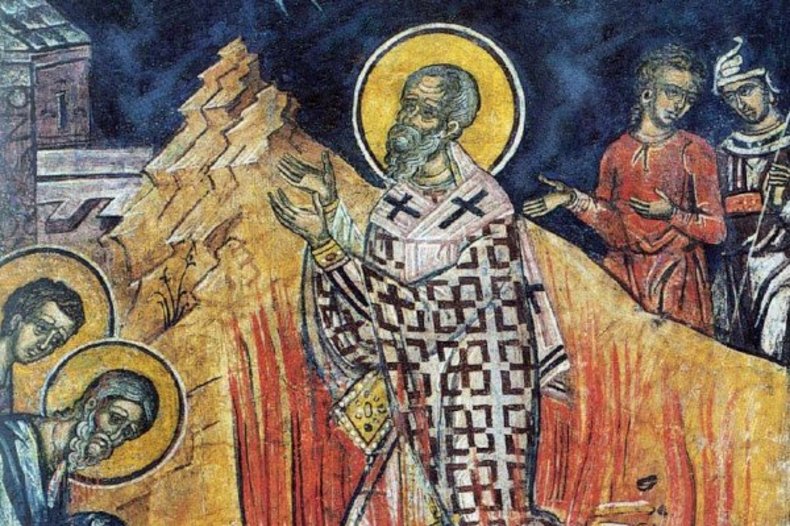
Saint Polycarp myroblytus, detail of a fresco in the monastery of Dionysiou, Mount Athos / © CC BY-SA 4.0, Octave 444.
Reasons to believe:
- Polycarp of Smyrna was a disciple of John the Apostle, and is regarded as one of three chief Apostolic Fathers. He was taught by the apostles and lived with several people who had themselves seen and known Jesus. This direct and traceable continuity lends credibility to the faith he professed.
He sealed his teaching with a public martyrdom. The Roman authorities first offered to spare his life if he proclaimed that "Caesar is Lord". But Polycarp refused to compromise: this firmness showed that the term "Lord" was understood in the strongest sense, and that Jesus' lordship cannot be compared to that of any other man, because he is God.
Polycarp was then given a glimpse of the atrocious death that awaited him (by wild beasts or by fire), but this did not shake his resolve: "I have served him [Christ] for eighty-six years, and he has done me no harm. How can I blaspheme my King who saved me?"
- We also know that Polycarp was not mad or suicidal, because he tried to hide to escape persecution. He wanted to live so that he could continue to make Christ known.
- The story of Polycarp's martyrdom is told by direct witnesses in The Epistle of the Christians of the Church of Smyrna to the Other Churches, whichis one of the oldest texts in Christian literature. Another direct witness, Irenaeus of Lyons, provides us with information about his life. These documents are recognised as authentic by historians today.
Polycarp had received the charism of prophecy. He was warned in a dream of his impending martyrdom and, well before his arrest, he told his friends that he would be "burnt alive".
- Polycarp's courage struck all those who witnessed his martyrdom. After his death, the Roman authorities ceased their persecution of the Christians for a time.
Summary:
Polycarp of Smyrna died a martyr at the very beginning of the second half of the second century. The month of his martyrdom, February, is well attested, but the exact year is a matter of debate, as the sources give differing indications. Some historians date it to the years 155-156, while others date it to the following decade, during the reign of Emperor Marcus Aurelius (161-180).
At the time of his martyrdom, Polycarp himself said that he had been a disciple of Christ "for eighty-six years". This means that he was born in the 70s or 80s, depending on the date of his martyrdom, probably into a Christian family. His parents were therefore Christians of the very first generation, and he himself benefitted from the witness of disciples of the apostolic generation.
The knowledge of Polycarp's martyrdom is based on several testimonies. It is briefly mentioned by one of his disciples, Irenaeus, who became Bishop of Lyons, but we have a detailed account in a letter from the Christians of Smyrna to the Christians of the Church of Philomelium. This letter was probably written a few months, or even a few weeks, after the events it describes.
The Churches of Asia Minor had been hit by a great persecution, orchestrated by the political authorities, and the Christians had been severely tortured. Despite this, they had not denied their faith. Far from weakening the Church, this violence had, on the contrary, been a powerful witness for other Christians, but also for people outside the Church. Having killed the ordinary faithful, the opponents hoped to halt the spread of Christianity by striking its leaders. The most important, known even to non-Christians, was Polycarp, the bishop of Smyrna for several decades (at least forty years).
When his arrest warrant was issued, he did not give himself up voluntarily, but instead tried to save his life. At the request of the brothers, he fled and went into hiding. This attitude is important, because voluntarily surrendering oneself to martyrdom can be seen as a sign of spiritual pride, and several Christians who did so ended up apostasising.
Polycarp was eventually arrested after being denounced. At first, the politicians spoke to him respectfully and offered to spare his life if he agreed to proclaim that "Caesar is Lord" and sacrifice to the pagan gods. But Polycarp refused to compromise. This firm attitude shows that the term "Lord" denoted a "divine being" and that the lordship of Jesus could not be put on the same level as another man. Seeing that they were unable to convince Polycarp with gentleness, they began to insult and abuse him as they led him to his place of execution.
After entering the arena, the proconsul made one last attempt to change Polycarp's mind, invoking his old age. Even abandoning the request for a sacrifice, he simply asked him to swear by Caesar's fortune, to curse Christ and the atheists, who were, for the Romans, the Christians. But Polycarp only agreed to denounce the atheists, making it clear that, for him, the real atheists were not the Christians, but those who worshipped false gods. The proconsul then threatened Polycarp and promised him a painful end. But Polycarp remained adamant, proclaiming loud and clear that he was a Christian and could not renounce his faith. When the hour of the wild beasts had passed, the crowd demanded that he be put to death by fire. This did not surprise Polycarp, who had been warned of the death he was about to suffer in a dream a short time earlier.
The pyre was set up, with the active participation of the crowd, and Polycarp was tied to it. Far from being frightened, he began to pray, thanking God for having judged him worthy of martyrdom and expressing his faith in the resurrection. He thus ended his earthly life praising God in the midst of his ordeal. His death sealed the testimony of a whole life lived for Christ.
David Vincent, doctoral student in the history of religions and religious anthropology at the École Pratique des Hautes Études.
Going further:
Letters to the Churches by St Ignatius of Antioch, Beloved Publishing LLC (September 3, 2015)
More information:Polycarp's Letter to the Philippians & His Martyrdom: The Early Christians by St. Polycarp (Author), The Church at Smyrna (Author), CreateSpace Independent Publishing Platform (December 10, 2016)
Polycarp's Letter to the Philippians & His Martyrdom: The Early Christians by St. Polycarp (Author), The Church at Smyrna (Author), CreateSpace Independent Publishing Platform (December 10, 2016)
THE REASONS FOR THE WEEK
Les martyrs ,
Les saints
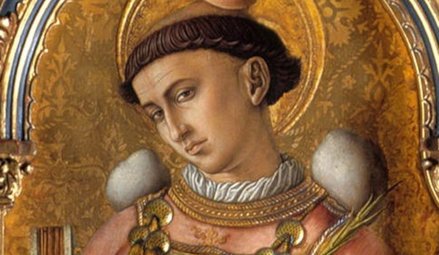
Saint Étienne, premier des martyrs
Les martyrs ,
Les saints

Santo Stefano, il primo martire
Les martyrs ,
Les saints

San Esteban, el primer mártir
Les martyrs ,
Les saints

The protomartyr Saint Stephen
Les martyrs ,
Les saints
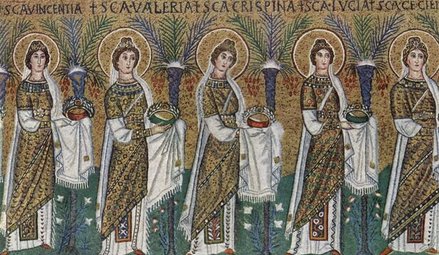
Sainte Lucie de Syracuse, vierge et martyre pour Jésus-Christ
Les martyrs ,
Les saints

Santa Lucia di Siracusa, vergine e martire per Gesù Cristo
Les martyrs ,
Les saints

Saint Lucy of Syracuse, virgin and martyr for Christ
Les martyrs ,
Les saints

Santa Lucía de Siracusa, virgen y mártir de Jesucristo
Les martyrs ,
Les saints
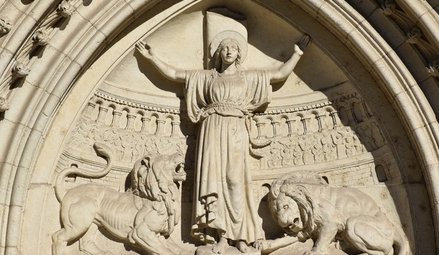
Sainte Blandine, la force de la foi
Les martyrs ,
Les saints

Santa Blandina e i martiri di Lione, la forza della fede
Les martyrs ,
Les saints

Saint Blandina and the Martyrs of Lyon: the fortitude of faith (177 AD)
Les martyrs ,
Les saints

Santa Blandina y los mártires de Lyon, la fuerza de la fe
Les martyrs ,
Les saints
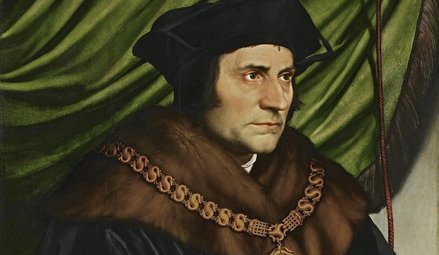
Thomas More, « bon serviteur du roi, et de Dieu en premier »
Les martyrs ,
Les saints

Tomás Moro, "buen servidor del Rey, pero antes de Dios".
Les martyrs ,
Les saints

Thomas More: “The king’s good servant, but God’s first”
Les martyrs
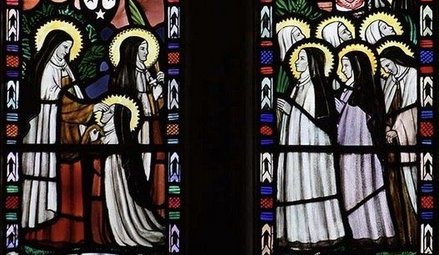
Les seize Carmélites martyres de 1794
Les martyrs

Le sedici Carmelitane martirizzate nel 1794
Les martyrs

The sixteen Carmelite martyrs of Compiègne - 1794
Les martyrs

Los dieciséis mártires carmelitas de 1794
Les martyrs

Blaise Marmoiton, l’épopée d’un missionnaire au bout du monde
Les martyrs

Blaise Marmoiton, l'epopea di un missionario ai confini del mondo
Les martyrs

Blaise Marmoiton: the epic journey of a missionary to New Caledonia (d. 1847)
Les martyrs

Blaise Marmoiton, la epopeya de un misionero en el fin del mundo
Les martyrs ,
Les saints ,
Les grands témoins de la foi
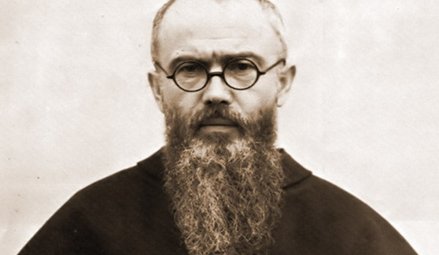
Saint Maximilien Kolbe, le chevalier de l’Immaculée
Les martyrs ,
Les saints ,
Les grands témoins de la foi

San Massimiliano Kolbe, il Cavaliere dell'Immacolata
Les martyrs ,
Les saints ,
Les grands témoins de la foi

Saint Maximilian Kolbe, Knight of the Immaculate
Les martyrs ,
Les saints ,
Les grands témoins de la foi

San Maximiliano Kolbe, Caballero de la Inmaculada Concepción
Les martyrs
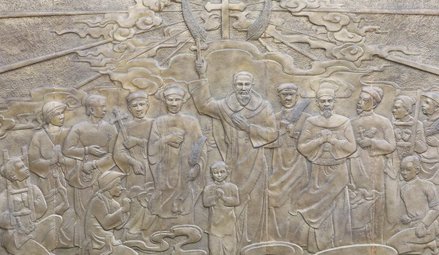
Le père Dung Lac et ses 116 compagnons martyrs au Vietnam
Les martyrs

Padre Dung Lac e i suoi 116 compagni martirizzati in Vietnam
Les martyrs

El padre Dung Lac y sus 116 compañeros martirizados en Vietnam
Les martyrs

The Vietnamese martyrs Father Andrew Dung-Lac and his 116 companions
Les martyrs

Il brave les supplices pour expier son apostasie
Les martyrs

Sfida la tortura per espiare la sua apostasia
Les martyrs

Enfrenta la tortura para expiar su apostasía
Les martyrs

He braved torture to atone for his apostasy
Les martyrs

Les martyrs d’Angers et d’Avrillé
Les martyrs

Los mártires de Angers y de Avrillé
Les martyrs

I martiri di Angers e di Avrillé
Les martyrs

The martyrs of Angers and Avrillé
Les martyrs ,
Histoires providentielles
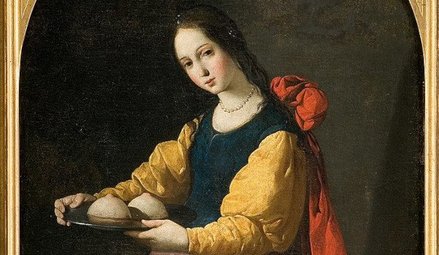
Sainte Agathe sauve la ville de Catane de la lave
Les martyrs ,
Histoires providentielles

Sant'Agata salva la città di Catania dalla lava
Les martyrs ,
Histoires providentielles

Santa Águeda salva a la ciudad de Catania de la lava
Les martyrs ,
Histoires providentielles

Saint Agatha stops a volcano from destroying the city of Catania
Les martyrs ,
Conversions d'athées
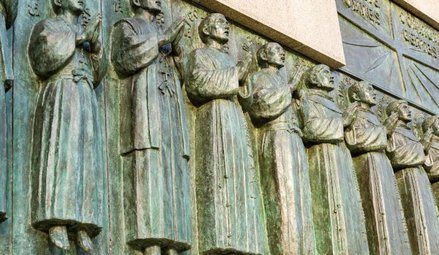
Le martyre de Paul Miki et de ses compagnons
Les martyrs ,
Conversions d'athées

Il martirio di Paul Miki e compagni
Les martyrs ,
Conversions d'athées

El martirio de Pablo Miki y sus compañeros
Les martyrs ,
Conversions d'athées

The martyrdom of Paul Miki and his companions
Les martyrs
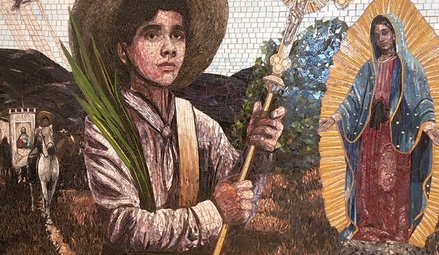
Mort à 14 ans pour le Christ Roi, José Luis Sanchez del Rio
Les martyrs

Morte a 14 anni per Cristo Re, José Luis Sanchez del Rio
Les martyrs

José Luis Sanchez del Rio, martyred at age 14 for Christ the King
Les martyrs
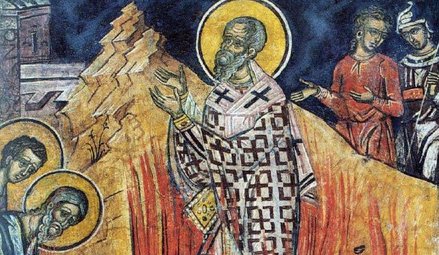
Polycarpe, évêque de Smyrne, disciple de Jean et martyr
Les martyrs

Policarpo, vescovo di Smirne, discepolo di Giovanni e martire
Les martyrs

Policarpo, obispo de Esmirna, discípulo de Juan y mártir
Les martyrs

Polycarp, bishop of Smyrna, disciple of John and martyr
Les martyrs

« C’est lui que j’aime et je suis prête à mourir pour lui »
Les martyrs
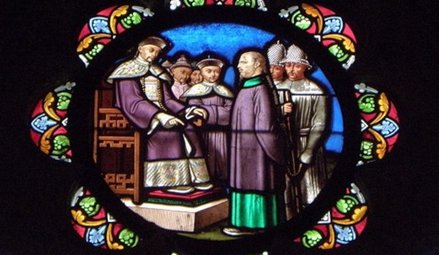
Double peine pour le père Chapdelaine
Les martyrs

Justin de Naplouse, apologète et martyr
Les martyrs

Justin Martyr: philosopher and apologist
Les martyrs

Les martyrs d’Ouganda ou l’éternelle répétition des persécutions
Les martyrs

The Uganda martyrs: a recurring pattern in the persecution of Christians
Les martyrs ,
Les saints
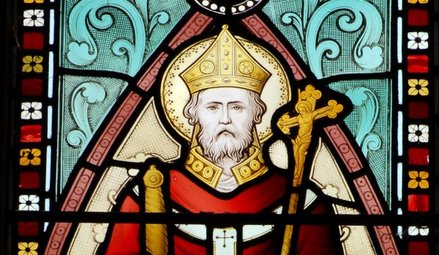
Saint Boniface sème la parole en Germanie
Les martyrs ,
Les saints

Saint Boniface propagates Christianity in Germany
Les martyrs ,
Conversions d'athées
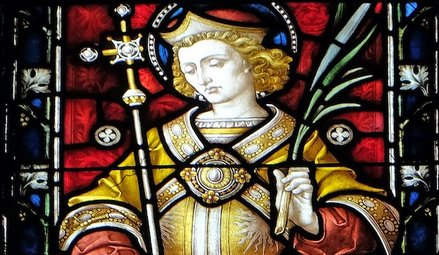
Alban, de la conversion au martyre
Les martyrs
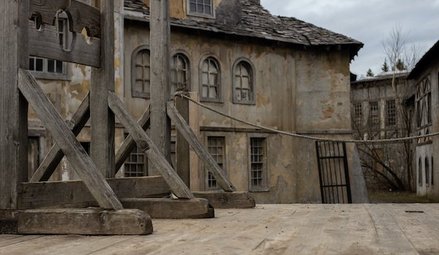
Filles de la Charité, elles prédisent la fin des persécutions
Les martyrs
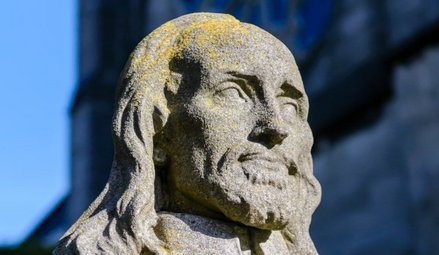
Oliver Plunkett, « coupable de promouvoir la foi catholique »
Les martyrs ,
Les saints ,
Histoires providentielles

Sainte Marguerite d’Antioche apparaît à Jeanne d’Arc pour la préparer à sa mission
Les martyrs

À Orange, le Christ accompagne les religieuses jusqu’à l’échafaud
Les martyrs

Afra, de la prostitution au martyre
Les martyrs
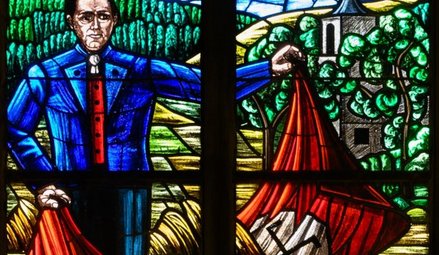
Franz Jägerstätter : il ne pouvait pas être catholique et nazi
Les martyrs
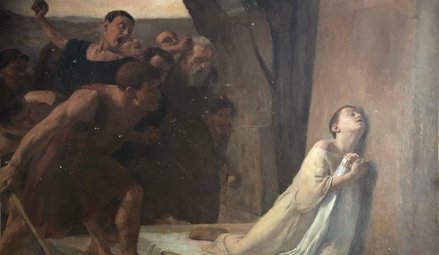
Tarcisius, martyr de l’Eucharistie
Les martyrs

Jésus rend la foi à Jean-Gabriel Perboyre
Les martyrs
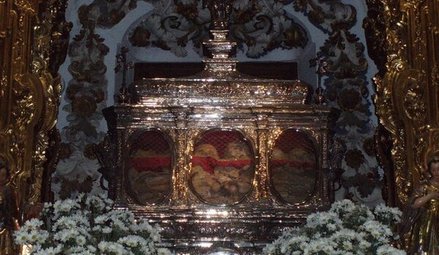
La révolte pacifique des catholiques de Cordoue
Les martyrs
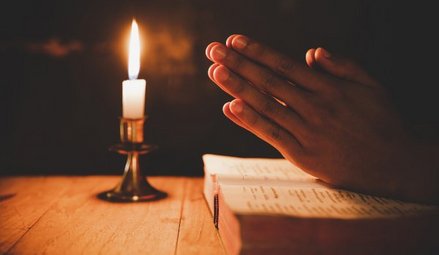
Anna Kolesarova, « hostie de la sainte chasteté »
Les martyrs
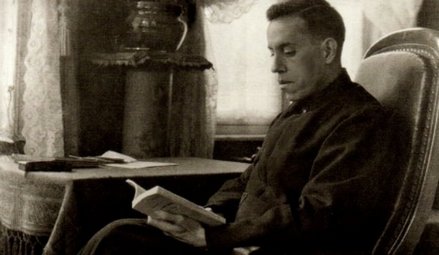
Miguel Pro, icône du Christ
Les martyrs
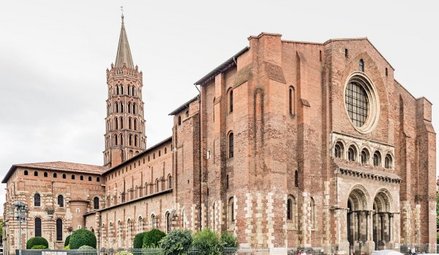
Saint Saturnin, mis à mort en étant traîné par un taureau
Les martyrs

Angélis de Chio, la folie du martyre
Les martyrs

Mgr Janos Scheffler, le pardon aux bourreaux
Les martyrs
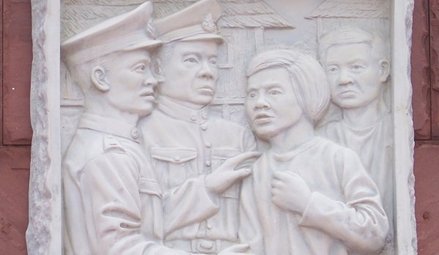
Le témoignage des sept martyrs de Songkhon
Les martyrs

Thomas Plumtree meurt ici-bas pour ne pas mourir à la vie divine
Les martyrs ,
Les anges et leurs manifestations ,
Art
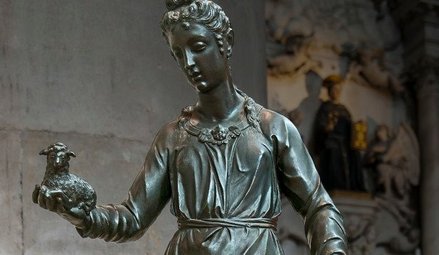
Dieu protège la virginité d’Agnès qui s’est consacrée à lui
Les martyrs
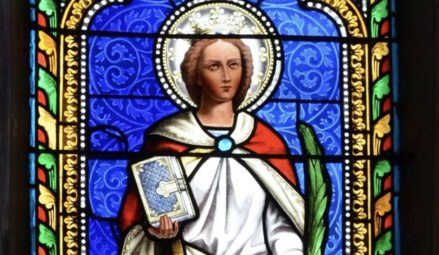
Sainte Martine : « Celle-là, Dieu sait son nom. »
Les martyrs
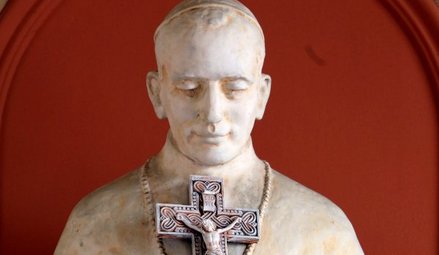
Stepinac dit non à Tito et reste fidèle à l’Église de Jésus-Christ
Les martyrs
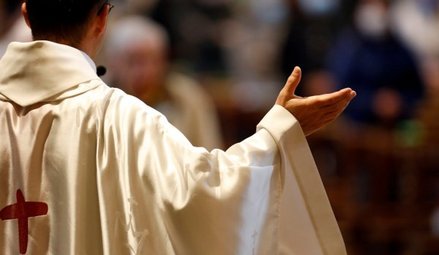
La dernière messe de Noël Pinot
Les martyrs

Anne Line, pendue pour avoir caché des prêtres
Les martyrs
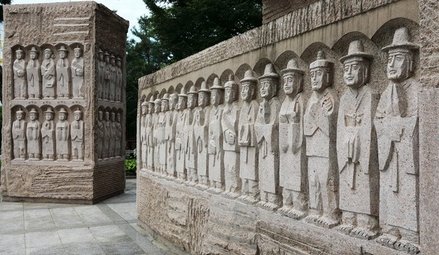
Siméon-François Berneux, le prêtre sarthois devenu évêque et martyr en Corée
Les martyrs
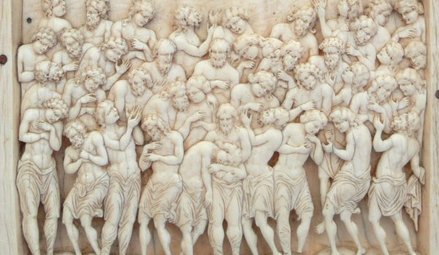
Ils préfèrent mourir de froid plutôt que de renier le Christ : les quarante martyrs de Sébaste
Les martyrs

Dominique Cam ne piétine pas la croix, mais l’embrasse
Les martyrs

Dieu fait d’un lâche un héros de la foi
Les martyrs

Apollonius aime la vie, mais la vraie, la vie éternelle
Les martyrs

« Frères à la vie, frères à la mort » à Buta
Les martyrs
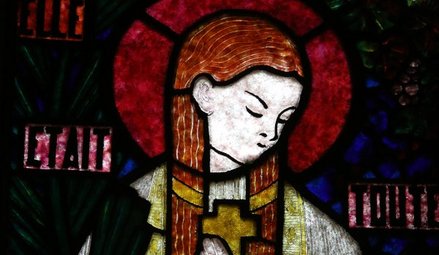
Solange, martyre de la pureté
Les martyrs
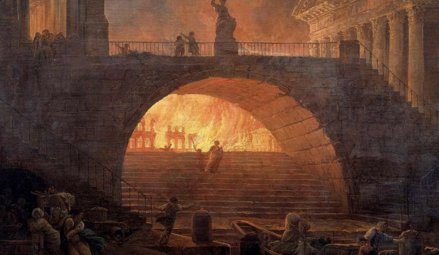
Rome brûle, l’Évangile perdure
Les martyrs ,
Les moines
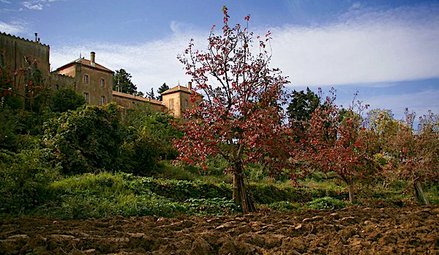
La vie offerte des moines de Tibhirine
Les martyrs
